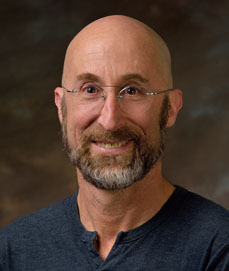The American Association for the Advancement of Science has selected twelve researchers in the area of artificial intelligence as the 2020–2021 AAAS Alan I. Leshner Leadership Institute Public Engagement Fellows.

Lyle Ungar, professor in the Department of Computer and Information Science, is among this class of Leshner Fellows. He is being recognized for his work using machine learning and text mining on social media messages to study physical and mental health.
Leshner Fellows are chosen for having demonstrated leadership and excellence in their research careers and an interest in promoting meaningful dialogue between science and society. Each cohort is focused on a different pressing social issue; previous classes have covered climate change, human augmentation and infectious disease. The fellows of the 2020–2021 class work in a range of fields, but each is focused on developing and studying machines and algorithms that augment or mimic human abilities, learn from and adjust to new situations, and perform tasks.
Ungar is a member of the Penn Research in Machine Learning Group and a principal investor in the World Well Being Project, which seeks to develop “new techniques for psychological well-being and physical health based on language in social media.” His 2015 TedxPenn talk, “Using Twitter to Predict Heart Disease,” showcases his research and explains how text from Twitter and Facebook posts can be used as qualitative insight into the health of a community.
“Being a Leshner Fellow will allow me to foster discussions on how artificial intelligence is transforming our society,” Ungar says. “How is AI changing the way we work? How does AI affect what it means to be human as more and more of our decision making — from shopping to dating — is handled by complex algorithms? And what opportunities does AI offer for increasing our well-being?””
The AAAS Leshner Fellows will meet in June 2020 at AAAS headquarters in Washington, D.C. for a week of intensive public engagement and science communication training, networking and public engagement plan development. In the following year, the fellows will use these tools and networks to increase the impact of their engagement activities and their capacity for public engagement leadership. AAAS staff provide ongoing support and continuing professional development throughout their fellowship year.
